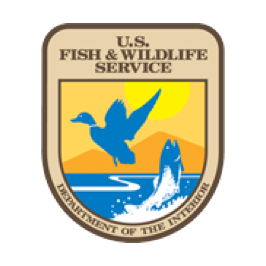Alaska is warming significantly faster than other U.S. states. Therefore Alaska Native communities must be among the first to adapt to the changing climate. In partnership with the Alaska Climate Adaptation Science Center‘s (AK CASC) Alaska Tribal Resilience Learning Network (AK TRLN), NAFWS is working to support Alaska Native Tribes to address management and adaptation needs as they adapt to the current and future impacts of climate change.
Projects
Alaska Tribal Climate Resilience
TRIBAL IMPACT
All Alaska Native Tribes and Indigenous communities are being impacted by climate change. Climate change can affect the availability of fish and wildlife resources, drinkable water, plant resources, access to native lands, and is causing some Indigenous communities to be relocated. Alaska Native lands comprise 45 million acres and the management of these lands must also adapt to the changing needs of both the ecosystems themselves and the Tribes that rely on them.
NAFWS ACTION
In September 2022, NAFWS was selected to provide ongoing support for the U.S. Bureau of Indian Affairs’ Alaska Tribal Climate Resilience Liaison program. NAFWS is adding three Tribal Climate Resilience Liaisons (TCRLs) to our staff that will work with the U.S. Geological Survey’s Alaska Climate Adaptation Science Center to work with Tribal communities across Alaska to improve their capacity to prepare for and respond to climate-related environmental impacts. The priorities of the liaisons will include:
- Identifying Tribal climate science needs
- Conducting outreach and extension programming
- Assisting communities to develop resilience and adaptation projects
- Providing technical assistance
- And hiring an Alaska Native TCRL intern






